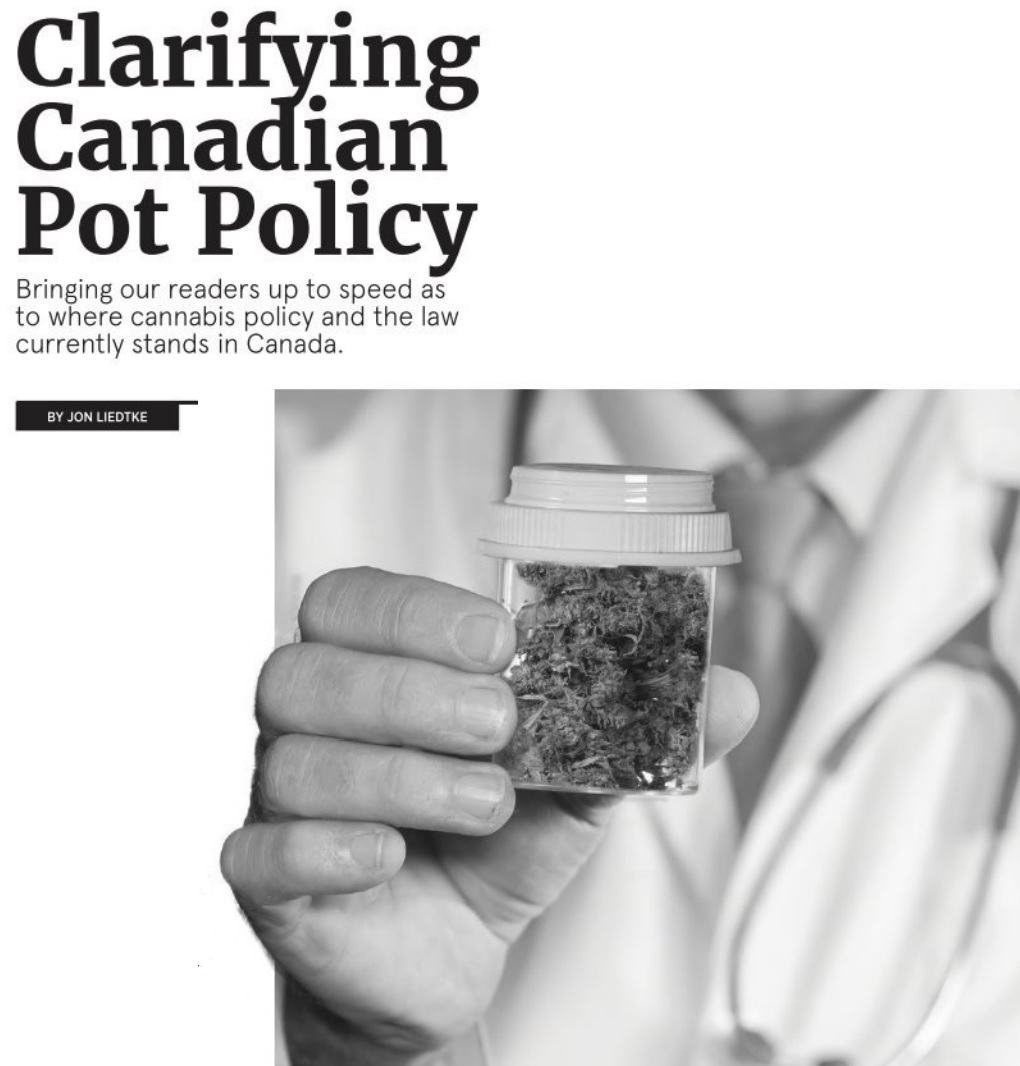The Windsor Independent
Jon Liedtke
May 15, 2016
Trudeau’s government announced on 420 they will legalize cannabis, and considering this, it made sense to explain summarize where cannabis policy stands in Canada.
As most of you know, unless you’ve been without access to traditional or social media, Justin Trudeau was elected Prime Minister partially on a platform of legalizing and regulating cannabis. He toured the country during his leadership campaign advocating decriminalization and legalization, and did the same while leader of the Liberal Party while campaigning to become Prime Minister (this time around however, he stopped advocating decriminalization).
So when he became Prime Minister, it was a big deal for the cannabis community, and since his election, the country has seen a HUGE proliferation of cannabis lounges, storefronts, and other related businesses open coast-to-coast anticipating legalization and wanting to get in at the ground floor.
It was an even bigger deal when Trudeau’s government announced on 420 they intended to bring forward cannabis legalization legislation spring 2017, so it seems
like prohibition is actually going to end.
Considering this monumental announcement, it made sense to summarize where we’re at in terms of cannabis policy in Canada.
THE GOVERNMENT SAID WHAT ON 420?
Trudeau’s Minister of Health announced at the UN that Canada was going to introduce cannabis legalization legislation early 2017 seeking to regulate, restrict access to, and keep cannabis out of the hands of children.
With this news, there is the possibility cannabis could be legalized as early as the end of 2017, or towards the beginning of 2018.
SO IS CANADA REALLY LEADING THE WORLD WHEN IT COMES TO CANNABIS
The eyes of the world are watching Canada. This has never been done before. In the
United States there have been individual states which have brought about legalization legislation, but not the federal government. Portugal has decriminalized cannabis and all drugs, but there hasn’t been a country that has legalized it in the
way Canada is planning to do.
WILL THIS IMPACT CANADA’S RELATIONSHIP WITH THE UNITED STATES AND OTHER COUNTRIES?
It will certainly change things a bit, especially considering cannabis is illegal in the United States federally. It’ll impact border crossings and potentially cause delays while crossing. There are three UN drug treaties Canada is an adherent to, but those can be ignored or modified if there is the will, and it appears as if there is.
In regards to the USA, things are changing rapidly as well. The DEA just last week allowed medical marijuana to be used for the first time in medical testing, and Mexico’s President just announced an initiative to legalize medical marijuana.
Global drug laws are changing very quickly, so whereas a few years
back if Canada sought to legalize cannabis, you might have seen problems due to cross border trade, now it looks like attitudes are truly changing and the impacts should be mitigated through diplomacy.
WHEN CANNABIS IS LEGALIZED, WHO ARE THE MAJOR PLAYERS? THE GROWERS AND DISTRIBUTERS?
If it becomes legalized, you’re going to be looking at two systems: a medical marijuana regime and a recreational cannabis regime, both fed by the same players: the large-scale producers, the Licensed Producers through Health Canada,
there are 29 of them now, Aphria and Tweed for example; on the smaller end it would people who were authorized to grow under the MMAR program.
Legal cannabis will be regulated federally in terms of production to ensure it is safe, free of impurities, and it would be provincially distributed, so each province could
choose their own distribution model. You can look to alcohol as a comparison. You could have the Licensed Producers and small-scale producers supplying the market,
much like the large breweries are in competition with craft breweries, and the provinces could determine the different methods of distribution. So for example, you might see B.C. licensing dispensaries, and Ontario extending the mandate of the LCBO to include cannabis.
But there should also be cannabis establishments where sale and consumption is allowed on site, but not to be taken offsite whatsoever, so like a bar.
I WANT TO GET A CANNABIS LICENSE, BUT I HEAR ABOUT AN MMAR AND A MMPR. WHAT’S DIFFERENCE BETWEEN THE TWO?
Simply put, the MMAR was a medical marijuana regime in place from 2001 to 2014 which allowed users to grow their own medication, designate someone to grow for
them, or to purchase medical marijuana from one federally authorized grower.
The MMPR is a medical marijuana regime put in place by Stephen Harper which repealed the MMAR and forced medical marijuana users to purchase their medication from a federally authorized Licensed Producer. The MMPR was ruled unconstitutional earlier this year, and Trudeau’s government plans to introduce
constitutionally compliant medical marijuana legislation by August 2016.
Currently the only people legally allowed to grow medical marijuana are those who had their license prior and who have been granted an extension due to the court injunction, and the federally authorized and approved Licensed Producers.
ARE WE CLOSE TO OVERCOMING THE STIGMA?
We’re getting closer, but we’re definitely not past the negative connotations. Cannabis businesses working with non-cannabis-based businesses, public events,
advertising campaigns, piece by piece, as cannabis is introduced more broadly into society, the stigmas will be overcome and the distinctions between any other
product dropped.
Jon Liedtke is a medical marijuana user, authorized under the MMAR and permitted use through the current injunction, the co-owner Of Higher Limits, Canada’s largest
cannabis lounge, and a director of the Canadian Cannabis Confederation, an organization actively seeking to bridge the gap between the cannabis industry,
cannabis community, and the public at large, including government and media.
WINDSOR INDEPENDENT
Clarifying Canadian Pot Policy
JON LIEDTKE
MAY 15, 2016
PAGE 25
https://www.yumpu.com/en/document/read/55482207/windsor-independent-may-2016/25
Jon Liedtke was a co-owner and business development manager for The Windsor Independent.



Leave a Reply